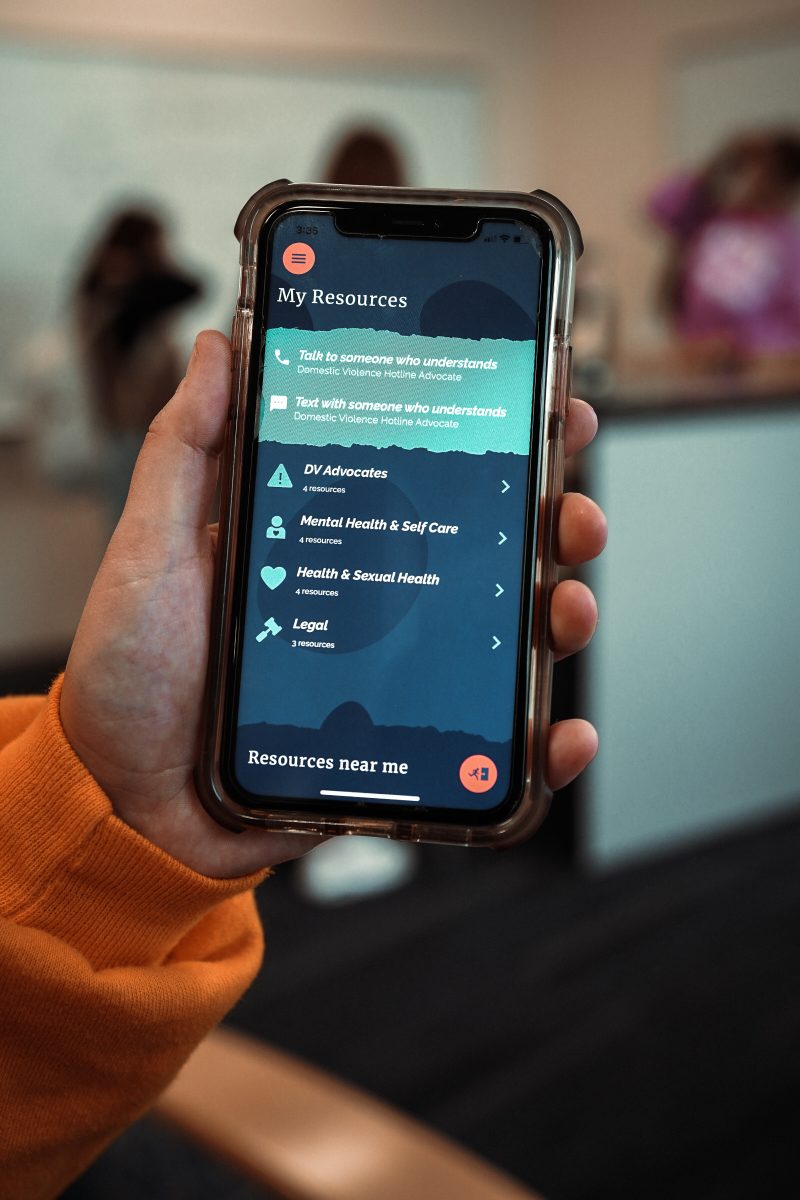Amongst common misconceptions about what abuse can look like, Bethel’s Title IX office and the myPlan app are helping to provide resources and knowledge.
By Makenzi Johnson
*This story contains themes of abuse and sexual assault, which may not be suitable for some readers.
The National Domestic Abuse Hotline reports that 43% of women in college have reported violent and abusive behaviors like verbal, emotional and sexual abuse in their relationships.
29% of college women have been in an abusive dating relationship.
52% of college women report knowing someone who has experienced violent and abusive behaviors in a relationship.
57% of college students find themselves having a hard time identifying violent or abusive behaviors in a relationship.
Abusive and violent behaviors are common. Bethel’s Title IX office provides resources and support for different kinds of harassment, violence, assault and other cases that can occur on campus — all of which can be reported to the Title IX office and the Title IX coordinator, Cara Horstman.
If a Bethel student wishes to report a case of sexual assault or DV, they can report to any faculty or staff member on campus, who are mandated reporters.
“Our faculty and staff members are not confidential resources and are required to inform Title IX when a report of sexual assault or domestic violence has been made,” Horstman said. “We do have confidential resources on campus in our Counseling Center, Christian Formation [office] and Health Services. Those offices do not have to report to Title IX when they are informed. They do, however, help students get the help they need.”
After a report has been made, both Bethel and off-campus resources can be utilized. Some of the Bethel services include academic accommodations, safety escorts, mutual no-contact orders, referrals to Bethel’s counseling and more. The Title IX office can also help someone report to local law enforcement in Ramsey County. Penalties and sanctions are put in place if a student is found in violation of the Title IX policy on a case-by-case basis by trained, designated decision makers who are Bethel faculty and staff.
But how does a person know to report a violation, if so many students do not understand the signs of abuse in a relationship?
“Both domestic and dating violence can occur on college campuses, and may look like manipulation, restriction of relationships/belongings/money, intimidation and actions that feel controlling,” Horstman said. “Often, students are engaging in their first romantic relationship in college and have moved away from a strong support system at home and they may not realize that they are experiencing domestic or dating violence.”
The app myPlan was designed for just that.

myPlan began in 2010 as a “decision aid” by John Hopkins University in domestic violence shelters as a way for survivors to “consider safety options, [inform] them about danger in their relationship and provide useful safety planning and resource information.” Six years later, the first ever interactive safety decision aid was launched. myPlan was developed for survivors, friends and family of survivors and domestic violence advocates to be able to recognize the signs of abuse in relationships.
Upon first downloading the app onto a mobile device or launched online, the user is instructed and required to enter a four-digit PIN. This PIN is the user’s private and anonymous access into the app. After the personal PIN is created, the user selects whether they are downloading the app for their own safety and on their own behalf or as someone downloading the app for their friend’s or family member’s safety and behalf.
Regardless of which option the user chooses for downloading the app, the user will be asked to personalize their myPlan experience by answering a series of questions about their situation. Four main categories – relationship, strategies, resources and learning – have several links, definitions, information and more for use. Some of the resources provided include a DV hotline chat, a mental health crisis text line, health and sexual health resources, legal/law resources and more. A link is also provided that can help a user place their pets in secure care while they escape DV.
In addition to providing safe and useful information and resources for a user, a primary goal of the myPlan app is to provide definitions for terms used to describe unsafe relationships. A user can test their knowledge about abusive relationships through the three interactive links: abuse defined, Relationship Bill of Rights and a consent FAQ. myPlan helps users to recognize relationship red flags and signs of abuse so someone can understand if their relationship is unsafe.
While myPlan is not affiliated with Bethel in any way, both the app and Bethel’s Title IX office are working to connect the community with resources and supporting victims in any way they can. Horstman and the staff in the Title IX office are often working “behind the scenes to offer supportive measures to the reporting party.”
“There can be a misconception that sexual assault and domestic violence does not happen [at Bethel] because we are a christian university, [but] unfortunately, situations do occur,” Horstman said. “Our focus is on helping those who have been impacted to get connected with resources and supportive measures and to continue to educate our community.”
There are several resources available for a student who has experienced sexual assault, domestic violence or sexual harassment of any kind. On and off-campus resources are listed below.
On campus:
Bethel’s Title IX office: [email protected]
Title IX Coordinator, Cara Horstman: [email protected] y6uyh
Off campus:
SOS Sexual Violence Services, Ramsey County:
651-266-1000, [email protected]
Crisis Connection:
612 379-6363 & 866 379-6363
Domestic Violence Hotline:
800-621-HOPE (4673)
Ramsey County Mental Health Crisis Line, 24 hour:
615-266-7900
Definition list | “Common terms defined”
- Domestic violence (DV): a pattern of behaviors used by one partner to maintain power and control over another person in an intimate relationship. DV can include physical, sexual, emotional/psychological, verbal abuse and more.
- Sexual assault: any type of sexual contact or intercourse without consent.
- Sexual harassment: actions and behaviors of sexual nature that are unwelcome, considered offensive or inappropriate.
- Sexual exploitation: taking non-consensual, unjust or abusive sexual advantage of an individual.
- Consent: the permission or acceptance that indicate one individual agrees to engage in an sexual act at the time of asking. Anyone incapacitated in any way cannot give consent (asleep, drunk, high, etc.). Silence, absence of resistance or the failure to give a negative response does not indicate consent. A verbal, affirmative response is needed.



















